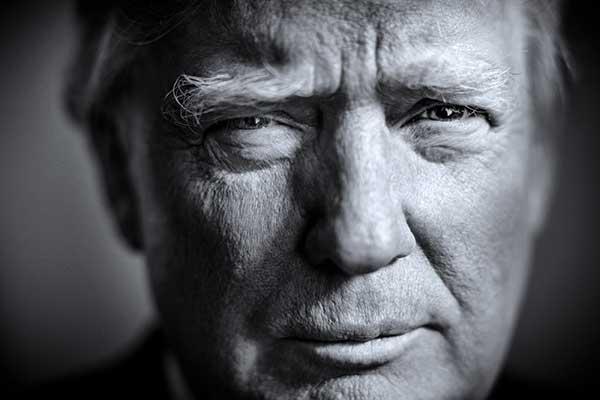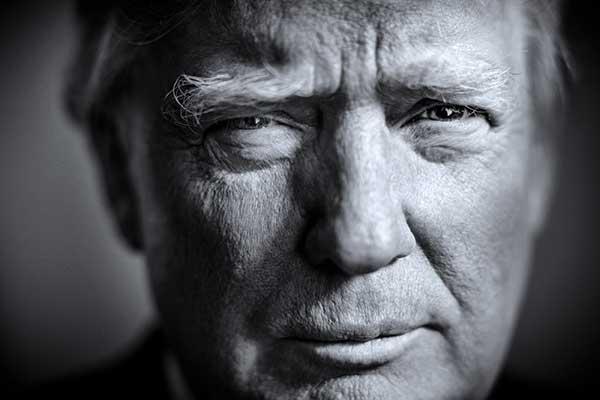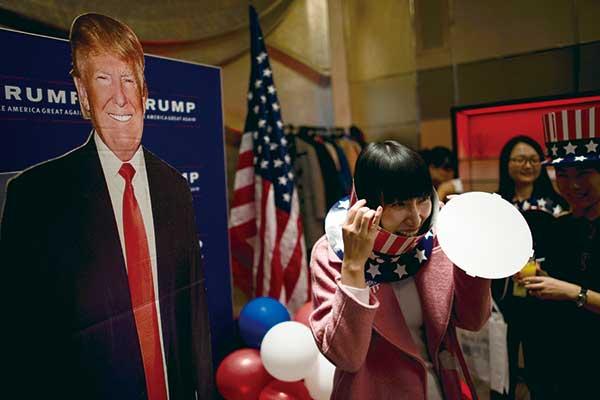For both China’s diplomatic and academic circles, Trump’s conversation with Tsai and his latest comments have been a wake-up call, especially for those who had hoped for a more conciliatory relationship between the US and China under President Trump. Many analysts now believe that Trump will risk shaking up the fundamentals of the Sino-US relationship to deliver on his campaign pledge to have “better deals” with foreign countries.
On his campaign trail, Trump said that the US should have all the options on the table when negotiating with other countries. Most of the time, the rhetoric has either been related to single issues, such as trade, or linked to specific countries, such as Japan and South Korea. Trump has repeatedly said the US should be ready to leave the table if Japan refuses to agree to pay more for the stationing of US forces in Japan.
It now appears that Trump will adopt the same strategy in dealing with China, that is to put all options and all issues on the table, including testing China’s limit on subjects that Beijing considers its “core interests,” such as Taiwan, in order to maximize American gains in the bilateral relationship.
Trump himself appeared to have spelled out this approach. On December 11, Trump told the TV show Fox News Sunday that he doesn’t feel the US should be “bound by a One China policy unless we make a deal with China having to do with other things, including trade.”
Following Trump’s latest comments, China has noticeably toughened its response. Chinese Foreign Ministry spokesman Geng Shuang said in a routine press conference on December 12, that China is “seriously concerned” about Trump’s words. Stressing that the One China policy was the “political foundation” of any Sino-American ties and that the issue touches on the “core interests” of China, Geng said it would be impossible for the two countries to cooperate on key areas.
On the same day, China’s Foreign Minister, Wang Yi said during his visit to Europe that any attempt to challenge China’s tolerance over the One China principle, “either by Taiwan or any other individual and forces,” would be like “lifting a rock only to drop it on one’s own feet.”
While the foreign minister has refrained from directly addressing either the US or Trump and is rather implicit about China’s possible counteraction, China’s state media has been more blunt. “If Trump abandons the One China principle, why should China continue to be a partner with the US in various international affairs? ... Why should Beijing still prioritize peaceful unification [with Taiwan] over forceful unification?” asked an editorial published on December 12 in the Global Times, a nationalist-leaning state-run newspaper. Warning that Trump is playing “a dangerous game,” the editorial said that China will have “ample ammunition” to accompany Trump “on a roller-coaster ride of the future Sino-US relationship.”
‘Playing Chicken?’
The Global Times is not alone. While China’s strategists and pundits are now reassessing the potential impact of a Trump administration, many are now calling for tough responses to any challenges on key issues of Chinese concern.
According to He Fan, an economist at China’s Renmin University, Trump may be “playing chicken” with China. In an article published by the online Chinese-language version of the Financial Times on December 4, He argued that Trump is trying to use issues such as the Taiwan problem as a bargaining chip to maximize US gains from its relationship with China, betting that China will avoid military conflicts to safeguard its recently-obtained prosperity.
He warned that as Trump has highlighted quite a few issues in his recent comments including currency, trade, and the South China Sea, China should increase the stakes in this game and make it clear that it will use force to unify Taiwan if necessary, in order to deter Trump. “If we adopt an appeasement policy towards somebody who refuses to respect the rules, we will end up back in the historic dark age again,” said He.
He’s argument is echoed by Shen Yi, an associate professor at Fudan University. In an article released by the Zaker new site on December 13, Shen argued that a fundamental principle for the bilateral relationship between the US and China is that both countries respect each other’s core interests, and said China must ensure that the future Sino-US relationship continues to be built on this principle. Shen also stressed that China should consider domestic politics in the US when contemplating its response.
Drawing on the example of Hitler’s military adventure to re-militarize the Rhineland in 1936, which he claimed was fiercely opposed by Germany’s military elite at the time, but went unchallenged by Great Britain and France, leading to the collapse of Hitler’s domestic opponents, Shen argued that if China fails to respond with a credible message to Trump’s moves, it would end up bringing more harm than good to the US, as it would not only embolden Trump to challenge China on other issues, but would thwart the domestic opposition that Trump is now facing over his foreign policy. “Trump would be presented as a leader more capable of understanding China’s strategic calculus than veteran strategists such as Henry Kissinger,” Shen said.
But not everybody advocates an escalation. According to Song Luzheng, a research fellow at the China Institute of Fudan University, if Trump continues to adopt his current style of communicating with world leaders, it will alienate not just China, but many other countries including traditional allies in both Europe and Asia. This would provide China a chance to improve its ties with these countries and increase its influence on the world stage. Trump has already offended India, due to another controversial call with the leader of Pakistan prior to assuming office.
In his article published by guancha.cn on December 8, Song argued that as long as Trump does not tread on China’s bottom line, which he said would be to personally visit Taiwan or invite the Taiwanese leader to visit the US, China should adopt a more prudent approach towards Trump’s provocations.
As there is still a month to go until Trump’s inauguration (at the time of going to press), it remains unclear whether Trump will keep the same strategy in dealing with China once in office, and how China would react. But as Trump has nominated some hard-line hawkish former generals for several key posts of his cabinet, and has pledged to strengthen the US military, including increasing the size of its navy from its current 272 ships to 350, many of which are expected to be deployed in the West Pacific, it is very likely that we will see a more volatile bilateral relationship between the world’s two largest economies.

 Old Version
Old Version

